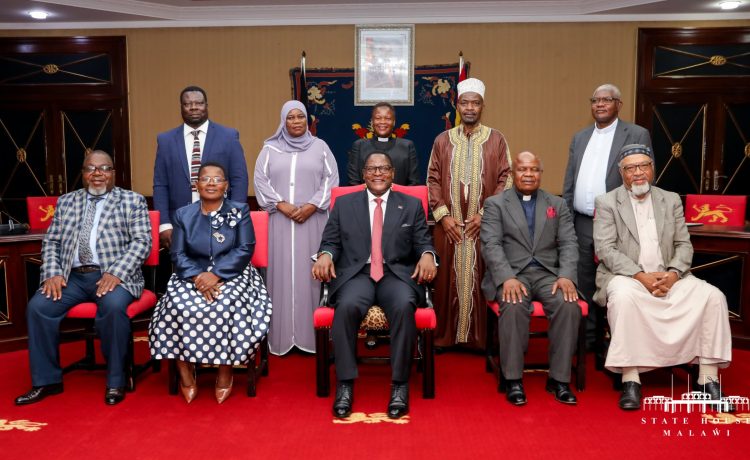By Lyson Sibande and Gustion Aniva Ntaba
In today’s digital landscape, the sheer volume of information at our fingertips can often cloud our judgment and distort our understanding of reality. Social media, while democratizing access to news, has simultaneously opened the floodgates to misinformation and disinformation alike, creating an environment where the truth is frequently obscured by falsehoods. At Shire Times, we recognize this challenge and make it our mission to deliver clarity and veracity, even when the truth is inconvenient.
Recently, the Public Affairs Committee (PAC) has taken to the public through the presidential audience to propagate unfounded claims regarding the incumbent administration’s performance in public service delivery. They assert that the government has done nothing to improve services, relying on a narrative that fails to consider the achievements and transformative projects that have taken place over the past few years. This editorial seeks to set the record straight regarding PAC’s ideal role and its lost trajectory.
The concerns raised by PAC regarding Chakwera’s administration are indeed serious. But they reflect longstanding challenges of Malawi’s fight against poor governance, political intolerance, poor public service delivery, corruption, energy crises, and devaluations and economic mismanagement among other challenges.
However, these issues are not unique to the Chakwera’s administration alone. These problems have not come to Malawi with Chakwera. They are chronic problems that have plagued Malawi since the transition to democracy, and this is where I have a problem with PAC’s continued approach of being a devout critic even where the Head of State gives them audience for dialogue.
PAC has been active since 1992. Every administration since 1994 has grappled with the same challenges: fighting corruption effectively and strengthening governance bodies and institutions, curbing political violence and intolerance, achieving sustainable economic growth, managing food security, addressing energy crises by expanding power generation and distribution to meet growing demand, boosting local value-added production, securing foreign markets to strengthen the Kwacha and maintain sustainable forex reserves, and reforming public financial management systems and the entire public sector to create an efficient civil service.
Your will recall that PAC persistently fought against Bakili Muluzi’s administration between 1994 and 2004. After that, they confronted and fought with Bingu wa Mutharika’s government between 2011 and 2012 and even issued him a 30-day ultimatum to resign in early 2012. They expressed dissatisfaction with Joyce Banda and fought Peter Mutharika over these same recurring problems.
Malawians have twice removed the DPP from power due to these same challenges. Through it all, PAC has been criticizing, attacking and issuing statements that have resulted into nothing.
PAC, and of course, every Malawian must understand that these are not President Chakwera’s problems alone but systemic issues that have burdened Malawi for the past 30 years. These challenges cannot be attributed to a single president, nor can they be resolved by one administration in a single term. They are rooted in systemic flaws within our institutions, laws, and both foreign and domestic policies.
The problems also extend to Malawian society, both in the public and private sectors. We suffer from poor work ethics, a tendency toward dishonesty, and a lack of innovation in creating businesses and exporting goods, services, and talents to foreign markets. For instance, while a Malawian might fail to run a grocery shop, a Burundian could succeed in the same location, selling the same items. Nigerians, Zimbabweans, and other foreigners thrive in businesses where locals struggle.
These systemic societal issues are not something any president can fix in a single term of office.
I, therefore, call on PAC to adopt a different approach and stop this relevance-seeking tactics. For 30 years, they have criticized every president, yet the problems persist. It is time for PAC to go beyond criticism and begin offering tangible solutions. They must recognize that mere criticism does not resolve challenges. There is no country in the world that became a great economy because of devout critics.
Instead of issuing attack documents, PAC should produce political and socio-economic statements and manifestos outlining actionable solutions to these chronic problems of our country. PAC must provide solutions towards the underlying collective organizational culture, institutionalized poor habits and compromised mentality of the collective Malawian society to facilitate the desired change among the people. No president will change Malawi if the people do not change first.
Chakwera has done a recommendable job in several areas. All Presidents including Muluzi, Bingu, Joyce Banda, and Peter Mutharika did some good jobs in certain areas. But problems continue and are recurrent because the issues are deep rooted, and fixing Malawi requires collective effort of all stakeholders.
We must all take responsibility and work together to address our nation’s problems regardless of our ethnic, regional, religious and political affiliations. We must all become solution providers not devout critics.
Perhaps at this point some highlight of one or two examples of public service delivery initiatives accelerated by Chakwera’s administration and overlooked by PAC could be important:
In the Area of Electricity Supply
One of the most pressing issues faced by the nation has been the chronic power outages that plagued communities for years and in a worse fashion during Peter Mutharika tenure immediately before Chakwera took over. Under the current administration, we have witnessed a significant turnaround. The eradication of chronic blackouts is not merely a faint promise; it is a reality that has transformed daily life. The Malawi Rural Electrification Program (MAREP) has made groundbreaking strides in providing electricity to rural areas, thereby empowering communities and fostering economic growth. This achievement deserves recognition, not dismissal.
In the Area of Water Supply: A Commitment to Clean and Reliable Access
Water scarcity remains a monumental challenge that had affected countless citizens in this country. It is undeniable that previous administration of Peter Mutharika oversaw periods of unreliable water supply, leading to incidents of contaminated water flowing through taps. However, the current government has taken substantial measures to rectify this situation. The expansion of Kamuzu Dam 2 has been a game-changer for the capital city, ensuring a consistent supply of clean drinking water. Water projects aimed at achieving reliable portable water supply have also been carried out in the northern region through the Northern Region Water Board and the souther region in Mangochi through the Southern Region Water Board. Moreover, the ongoing construction of the Salima/Lilongwe Water Project is a testament to the government’s commitment to developing robust water infrastructure.
In the Area of Healthcare and Education
Public service extends beyond utilities; it encapsulates essential sectors like healthcare and education. This government immediately recognized the importance of nurturing communities through well-resourced hospitals, schools, and infrastructure. The decentralized approach to development has empowered District Councils to allocate resources effectively, ensuring that communities receive the support they need. The significant increase in the Constituency Development Fund (CDF) from K20 million to K200 million as championed by Chakwera marks a decisive step toward enhancing public service delivery. These funds, when utilized judiciously, provide opportunities for community development and upliftment. This is an effort which PAC ought to highlight and not dismissing.
It is crucial to recognize that the information being peddled by PAC is politically motivated and, in many ways, seeks to undermine the progress made under this administration. At Shire Times, we are committed to bringing you the truth, allowing you the agency to make informed choices. The narrative that paints the administration as ineffective neglects the tangible outcomes and improvements that have been achieved. While the challenges in public service delivery might be far from over, acknowledging the strides made thus far is essential. We must foster a culture of dialogue grounded in facts rather than political rhetoric. Citizens deserve to know the whole truth, free from distortion.
It is incumbent upon PAC to rise above sensationalism and misinformation, and let the citizenry celebrate the advancements in public service delivery that are reshaping our society amidst the undeniable challenges. At Shire Times, we will continue to champion transparency and accountability, ensuring that you have access to reliable information that helps illuminate the path of truth. We believe it is in this commitment to truth that we can inspire a more informed and engaged citizenry, equipped to hold our leaders accountable and contribute to the betterment of our nation.












